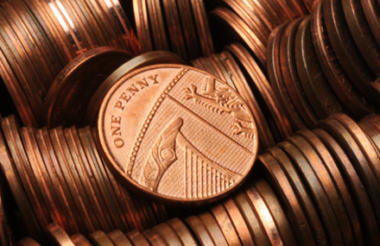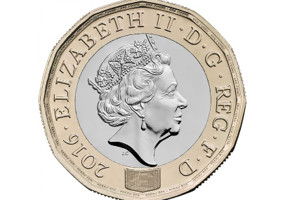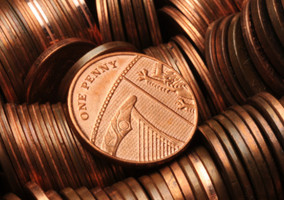Representative bodies have urged the government to work with the sector and ensure there is support available to help with the transition to a society in which people use less cash.
The Charity Finance Group and the Institute of Fundraising have both submitted written responses to HM Treasury’s consultation on digital payment technologies.
As part of the spring statement the government announced a consultation, Cash and digital payments in the new economy, which closed yesterday.
Initially this was interpreted as an attempt by the government to abolish copper coins, but the government said that this was not its intention.
‘Cash has wider benefits’
The IoF told the government that “charities are already seeing a decrease in the percentage of donations given in cash, expect the decrease to continue, and the majority think that they will be using contactless payments in the near future”.
A survey of its members found that 70 per cent of charities had seen a decrease in cash donations over the last three years and that a similar percentage expect to use contactless donation systems in the future.
The main barriers to the adoption of contactless technology are the cost and the reliability of the technology.
IoF also told the government that the “value of cash in charitable giving and fundraising has wider positive benefits beyond the amount of donations given” because of the branding and awareness raising benefits associated with cash collections.
But it said that charities understood the potential benefits of a “system that would be more based on digital payments” which could be more secure and also prompt higher donations.
The IoF called on the government to work with the sector to build its capacity.
It suggested policy makers consider how to reduce the cost of contactless payment technology for charities and that there should be a “road map” to “manage any transition, rather than impose hard or cliff-edge type policies which could cause concern and difficulties for charities”.
Help with access to new technolgy
The Charity Finance Group also highlighted the potential impact on small charities in its submission.
“According to the Charities Aid Foundation, 'loose change' donations are worth around £320m a year. 1p and 2p coins and therefore worth millions of pounds to the charity sector, and many small charities will be dependent on the giving generated through this loose change,” it said.
CFG also suggested that the contactless technology be made more affordable for charities.
“We would encourage the government to work with charity representatives to see whether contactless technology providers can be encouraged to provide discounted technology to charities, particularly small organisations. This may require some form of government investment, but we would hope that the government’s convening power could be brought to bear,” it said.
It also said that the government could use its influence to encourage charities themselves to invest in new technology.
“Charities often struggle to get access to funds or to justify to donors why they should invest in these technological changes. This requires government actions to overcome, in part through encouraging investment by charities in these technological developments but also providing investment or convening business partners so that charities are able to get more favourable terms of support,” it said.
|
Related articles












